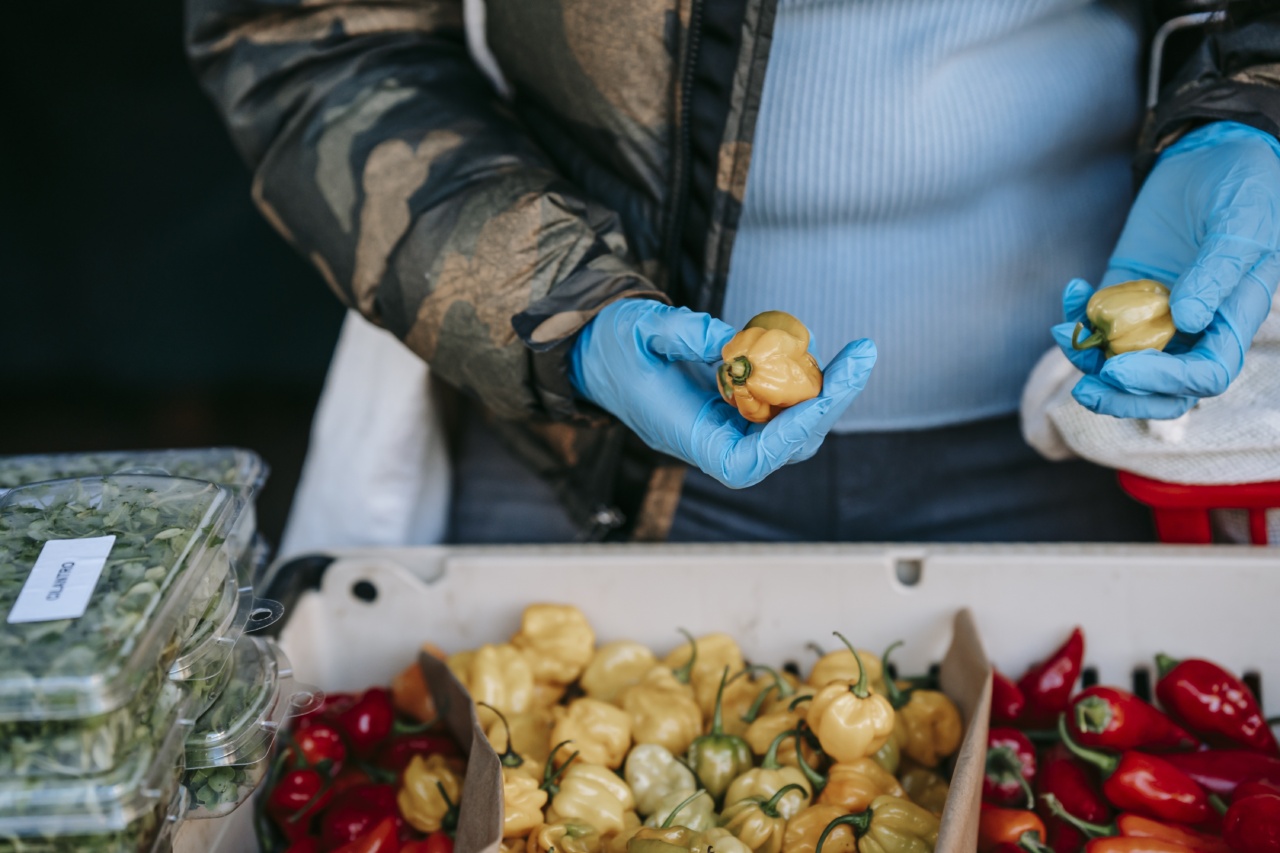Colon cancer, also known as colorectal cancer, is the third most common cancer in the world. According to the World Cancer Research Fund, there are approximately 1.8 million new cases globally each year.
Lifestyle and dietary factors are known to be major contributors to this form of cancer. In this article, we discuss 30 foods that may increase the risk of colon cancer.
Processed meats
Processed meats such as bacon, sausage, ham, and hot dogs are commonly consumed in Western diets. These meats contain high amounts of saturated fat, salt, and nitrites, which are known to be carcinogenic.
Studies have shown that regular consumption of processed meats significantly increases the risk of colon cancer.
Red meats
Red meats such as beef, pork, and lamb are also commonly consumed in Western diets. These meats are high in saturated fat and heme iron, which can damage the lining of the colon.
Studies have also shown that regular consumption of red meat can significantly increase the risk of colon cancer.
Fried foods
Fried foods such as french fries, fried chicken, and onion rings are high in trans fats, which can raise cholesterol levels and increase the risk of colon cancer.
These foods are also often coated in breadcrumbs, which can contain acrylamide, a known carcinogen.
Sodas and sugary drinks
Sodas and sugary drinks are high in sugar and artificial sweeteners, which can lead to weight gain and obesity. Studies have shown that obesity is a major risk factor for colon cancer.
Alcohol
Alcohol consumption has been linked to an increased risk of colon cancer. According to the American Cancer Society, people who consume more than 3 drinks per day have a higher risk of developing colon cancer than those who do not drink alcohol.
White bread and refined grains
White bread and other refined grains such as pasta and rice are low in fiber and can lead to constipation and other digestive issues. Studies have shown that a diet high in refined grains can increase the risk of colon cancer.
Cookies, cakes, and pastries
Cookies, cakes, and pastries are high in sugar and trans fats, which can lead to weight gain and obesity. Studies have also shown that a diet high in sugar can increase the risk of colon cancer.
Fast food
Fast food is often high in saturated and trans fats, sodium, and sugar. These foods can lead to weight gain and other health issues, which can increase the risk of colon cancer.
Artificial sweeteners
Artificial sweeteners such as aspartame, saccharin, and sucralose are often found in diet sodas, desserts, and other low-calorie foods. Studies have shown that long-term consumption of artificial sweeteners can increase the risk of colon cancer.
High doses of vitamin supplements
While vitamins and minerals are important for good health, high doses of some supplements may increase the risk of colon cancer.
For example, studies have shown that high doses of beta-carotene supplements can increase the risk of colon cancer in smokers.
Low-fiber foods
A diet low in fiber can lead to constipation and other digestive issues, which can increase the risk of colon cancer. Foods that are low in fiber include processed foods, refined grains, and many snacks and desserts.
Charred and grilled meats
Charred and grilled meats are cooked at high temperatures, which can lead to the formation of carcinogenic compounds. Studies have shown that regular consumption of charred and grilled meats can increase the risk of colon cancer.
Canned foods
Canned foods are often high in sodium, which can increase the risk of colon cancer. Some canned foods may also contain BPA, a chemical that has been linked to an increased risk of cancer.
Salt-preserved foods
Salt-preserved foods such as pickles, salted fish, and some deli meats are high in sodium and nitrates, which can increase the risk of colon cancer.
These foods are also often high in saturated fat and can contribute to weight gain and other health issues.
Ice cream
Ice cream is high in sugar, fat, and calories, which can lead to weight gain and obesity. Studies have also shown that a diet high in sugar can increase the risk of colon cancer.
Margarine
Margarine is often made with trans fats, which can raise cholesterol levels and increase the risk of colon cancer. Some margarine products also contain palm oil, which may increase the risk of colon cancer.
Shellfish
Shellfish such as shrimp and lobster are often high in cholesterol and saturated fat. Studies have shown that a diet high in cholesterol and saturated fat can increase the risk of colon cancer.
Nitrite-rich foods
Nitrite-rich foods such as canned meats, hot dogs, and bacon are commonly consumed in Western diets. These foods contain nitrites, which can be converted to carcinogenic compounds in the body.
Soy products
Soy products such as tofu and soy milk are often promoted as a healthy alternative to meat and dairy products. However, some studies have shown that regular consumption of soy products may increase the risk of colon cancer.
Coffee
Coffee contains caffeine, which can lead to dehydration and constipation. Studies have also shown that regular consumption of coffee may increase the risk of colon cancer.
Eggs
Eggs are often consumed as part of a healthy diet, but some studies have shown that regular consumption of eggs may increase the risk of colon cancer.
Eggs are high in cholesterol and saturated fat, which can contribute to weight gain and other health issues.
Low-fat dairy
Low-fat dairy products such as skim milk and low-fat cheese are often promoted as a healthy alternative to high-fat dairy products.
However, some studies have shown that regular consumption of low-fat dairy products may increase the risk of colon cancer.
Energy drinks
Energy drinks are high in sugar and caffeine, which can lead to weight gain and other health issues. Studies have also shown that regular consumption of energy drinks may increase the risk of colon cancer.
Corn oil
Corn oil is often used in processed foods and fried foods. It is high in omega-6 fatty acids, which can contribute to inflammation and increase the risk of colon cancer.
White sugar
White sugar is often added to processed foods and desserts. Regular consumption of white sugar can lead to weight gain and other health issues, which can increase the risk of colon cancer.
Hydrogenated oils
Hydrogenated oils such as vegetable shortening and margarine are often used in processed foods and baked goods. These oils are high in trans fats, which can raise cholesterol levels and increase the risk of colon cancer.
Processed cheese
Processed cheese is often high in sodium, saturated fat, and calories. Regular consumption of processed cheese can lead to weight gain and other health issues, which can increase the risk of colon cancer.
High-fructose corn syrup
High-fructose corn syrup is a common sweetener used in many processed foods and sodas. Studies have shown that regular consumption of high-fructose corn syrup can increase the risk of colon cancer.
Canned soups
Canned soups are often high in sodium, which can increase the risk of colon cancer. Many canned soups also contain BPA, a chemical that has been linked to an increased risk of cancer.
Conclusion
A diet high in processed and red meats, fried foods, sugary drinks, and low-fiber foods can significantly increase the risk of colon cancer.
To reduce the risk of colon cancer, it is important to consume a balanced diet rich in fruits, vegetables, whole grains, and lean proteins. Regular exercise and maintaining a healthy weight can also help to reduce the risk of this form of cancer.





























